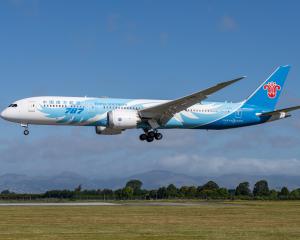
Covid 19 here, there and everywhere. For some, the change is likely permanent. Who’d want to have shares in an airline?
Meanwhile in agriculture, the issues of environment, sustainability, emissions, to name a few, have not evaporated. Instead, they are likely to be more important than ever.
Covid-19-disrupted food supply chains made people think carefully about where their food was coming from, probably for the first time in their lives.
The discussion morphed from light-hearted smashed avocado/millennial hazing to toilet paper fist fights (Australians ...) and supermarket rationing of previously untrendy commodities like yeast, flour and pasta.
Food bank demand went ballistic. Many food charities have appeared; Meat the Need sprang into life, putting meat on the table for those in need via farmers donating animals. A truly inspirational way for growers to link with consumers and build a selfless reputation in a time of need.
Farmers, it seems, may be cool again. Have we got our mojo back with our townie cousins? Perhaps a bit early to tell. But the window is open for the conversation to occur.
Why did our mojo go-go? Farmers have lost touch with the urban communities. Why?
No longer do most ‘‘townies’’ have farming relatives.
We’ve believed our own press — ‘‘farmers are the backbone of the New Zealand economy’’— we became complacent, because we’d been told our efforts were noble and our urban cousins needed us more than we need them.
Meantime they’ve moved on — do consumers know or care how much Australian beef is sold in supermarkets? We’re still remembering how good the Korean War wool boom was (in 1951 ...) and why isn’t it like that today for us farmers?
Urbanites have observed rural sector capital appreciation. How many real farms can you buy for less than $3million these days?
Then they re-look at their lot, wondering how they’re ever going to buy a house. Looking over the fence again, they eye farmers enviously, not always understanding the true costs, the climate and market risks and our efforts for the rewards received.
As a generalisation, people alive today have never had a food supply so good.
Changing technological, genetic and management practices continue to increase food production far in excess of what was envisaged even in our lifetimes.
It is debatable whether this food supply is sustainable (water constraints, production system sustainability), if the food is sufficiently nutritious (heavily processed, calorie dense, nutritionally bereft, cheap foods) or even if the food is reaching those most in need.
Until Covid-19, most New Zealanders did not think about farming in the context of where their food comes from.
When they do think of farming, many perceive rich entitled whinging cockies with over-intensified farms, polluted waterways and too many farting animals in a degraded environment. No wonder we have lost touch with many of our urban cousins!
The opportunity is ripe for the 30-year-old slowly widening rural-urban gap to close.
We have environmental and sustainability headwinds facing us, requiring a collective deep breath and a mature nationwide discussion on contentious topics like genetic engineering, water harvesting, nutrient management and emissions profiles.
As a country, we aspire to add ‘‘sustainably produced’’ to our list of attributes. The Primary Sector Council’s long-awaited inspirational vision and strategy Te Taiao — has been overshadowed in the media by Covid-19.
Agriculture will lead New Zealand out of the Covid-19 wilderness. Brand ‘‘New Zealand’’ is seen by many as a proxy for safe, trustworthy food.
The world has looked favourably upon New Zealand and the way the Covid-19 crisis has been handled to date.
Now the world is looking to us to help solve their food problems. New Zealand agriculture will be the saviour of the New Zealand economy, and urbanites will benefit as much as farmers.
For New Zealand agriculture to perform to its sustainable potential, we need agreement from our urban cousins for these technologies and practices to occur as we strive to produce high quality food with less environmental impact.
To have that discussion, they need to understand us and why we do what we do, and why agriculture is so important to New Zealand's economic welfare.
He waka eke noa. We’re all in this together.
●Rob Hewett farms sheep, beef and forestry in the Clutha district. He is co-chairman of Silver Fern Farms Ltd, chairman of Farmlands Co-operative, a director of NZX-listed T&G Global, a director of Pioneer Energy, Pulse Energy and Southern Generation Partnership. He is also on the Lincoln University Council.
Comments
There are alot of great points in this piece, however i think rural leaders such as Rob have again let the sector down a bit through unfortunate somewhat patronizing suggestions "townies" (the 4.4 million of us) may be jealous and naive to farming practices and the spoils of hard work, and as such its up to "townies" to learn more about farming to quell any unfounded fears around environmental practices we may have. Rob and other rural leader need to recognize city people are neither jealous nor naive, and there is no divide , but all people (city , rural , wealthy , poor, jealous, non jealous) just actually want a healthy environment for their families and if they see environmental issues such degradation occurring they should be calling this for what it is. Just as Rob would have every right to call out one of our Dunedin based factories if it was pumping sewage into his rivers.
They pump it to the sea....
Townies, well when those townies move to the country they want to change things, they don't like the noise of frost fighting at 0200. They don't like this, they don't like that. Who was shooting a X time? Oh they've got a gun, call the cops, never mind the poor bugger just doing his job with the gun. I could go on and on.
Townies do need a wake up call, same goes for some farmers.












